Dec 2019 edition
Dec 2019 edition Joy
Translations
$41bn investment deals for Africa
$41bn investment deals for Africa tsoanaSA Investment Conference
The African Development Bank (AFDB) has revealed that the Africa Investment Forum (AIF) has netted 52 projects worth $41 billion in investment.
The AIF took place recently in Sandton, Johannesburg.
A beaming Akinwumi Adesina, the AFDB President, said the investments were a clear indication that Africa is fertile ground for investment.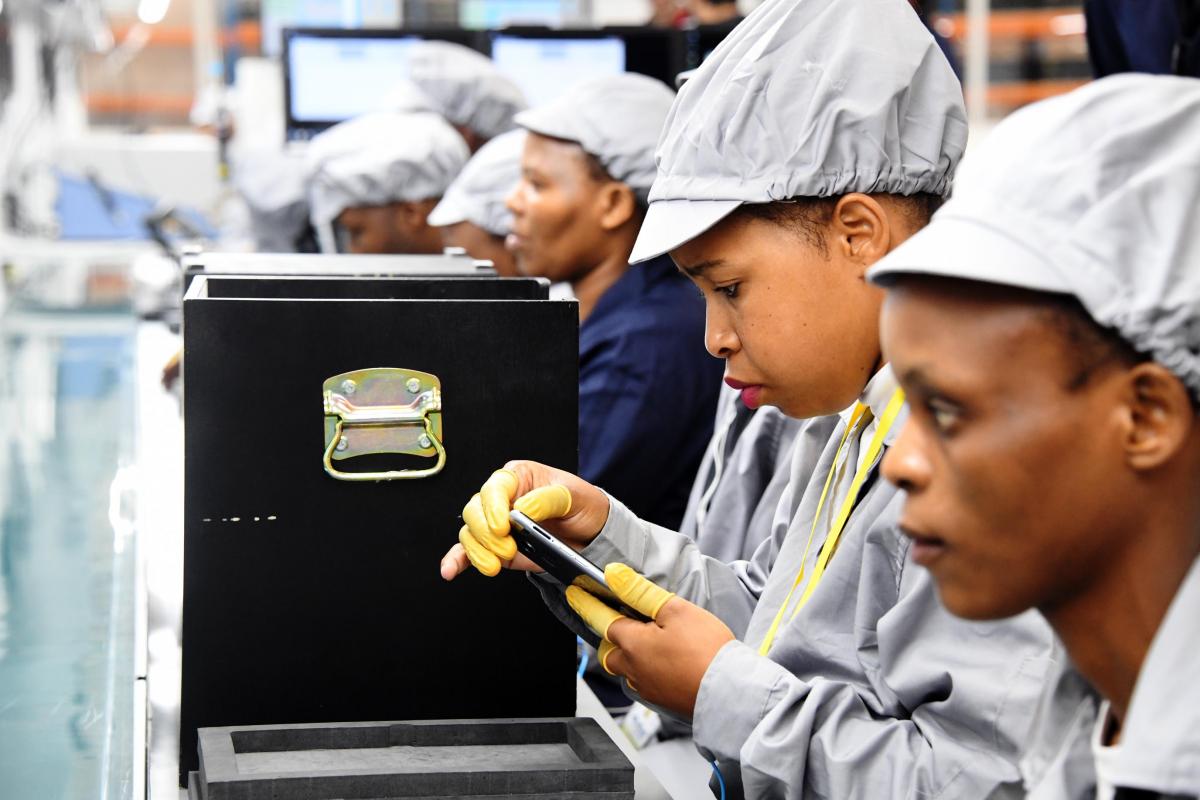
“We’ve had an incredible event. We had 2 221 participants coming from 109 countries, 48 of those from the continent and 61 from outside Africa. You came and you voted for investment in Africa,” said Adesina.
He heaped praise on the South African government for successfully hosting the event, saying the country was not only a great place to visit, but also a great destination for business.
This year’s instalment saw major deals concluded. These included the $600 million cocoa field deals in Ghana, a $58 million Alecia Equity Fund for Women and the $2.6 billion Accra Skytrain investment.
Out of the 56 transactions, 52 secured investment interest, totalling $41 billion, an increase from last year’s $38 billion.
The investments cover projects in 25 African countries.
African citizens to benefit
Adesina added that investments ploughed into African economies should trickle down to its underdeveloped communities.
“[People] want electricity, water and better housing… It’s great that we have sealed the deals but beyond that, we have to make sure that the projects deliver and meet the needs of those we are here to serve.”
“We continue to work hard to ensure that we put what Africa needs behind all the investments. We need to be a thriving continent at the edge of investor confidence,” Adesina said.
Investors, he said, are mindful of their collective responsibility to make sure that things work.
“What you see here is partnership for investment in Africa. From project promoters, project developers, project sponsors to the investors - it’s all about partnership for investment in Africa.”
Platforms such as the AIF are not just about investment but also about making an impact on development.
“We want to make sure that the lives of Africans are improved drastically. We want to reduce inequality in Africa, not just for a few - it has to be for everybody. It is a collective responsibility for everybody to make sure that we deliver,” Adesina said.
He urged investors to make the deals materialise.
Reaping rewards
Adesina added that the investments concluded during last year’s AIF Forum have since been realised.
“Africa is ready to absorb more investments,” he said. “The risk perceptions from the continent, while high, are often exaggerated. And they do not often match what data shows and return performance on investment.
“A lot of progress is being made with a highly-dedicated team of partners working around the clock to accelerate the financial closure of investments,” he said.
highly-dedicated team of partners working around the clock to accelerate the financial closure of investments,” he said.
Among these was the $500 million Africa Infrastructure Investment Fund and $175 million for the Capital Guarantee Fund for Investors. In South Africa, the beef agro-processing project sought and secured $300 million.
“The Alicia Identity Fund, a private equity fund targeting women businesses, sought $72 million – it was secured,” he said.
Among the many successfully rolled out projects was the Mara Phone factories in South Africa and Rwanda.
“The AIF is not a talk shop. We deliver on concrete transactions. Our teams are working hard and on target to reach financial closure of several investments before the end of their year. We promise, we deliver,” he said.
The AFDB , he said, is more than ever geared up to help grow investment on the continent. SAnews.gov.za
Citizen participation essential to create electoral wards
Citizen participation essential to create electoral wards Ursula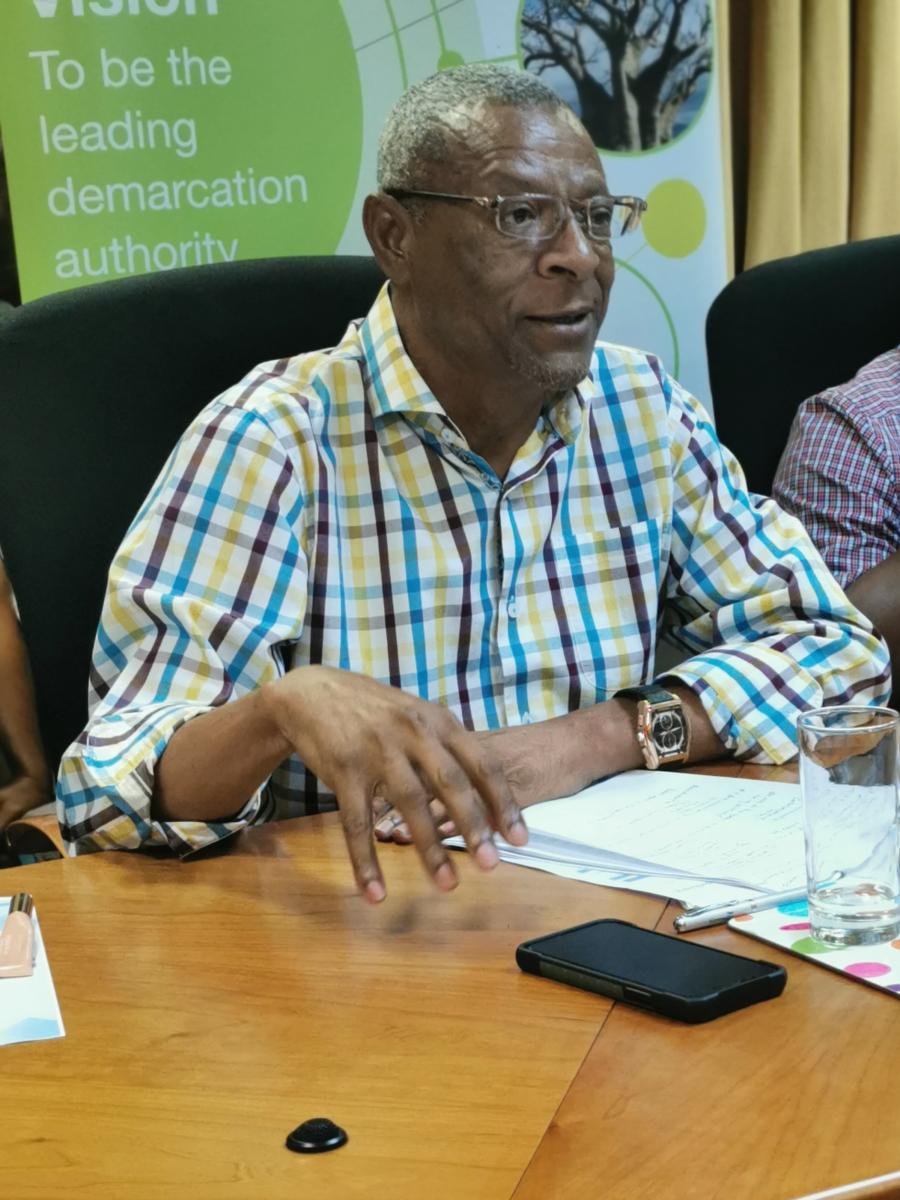 In an effort to maximise active public participation in demarcation processes, the Municipal Demarcation Board (MDB) is pulling all stops to promote and encourage active public participation in the ward delimitation process ahead of the 2021 Local Government Elections (LGE).The nation-wide public consultation sessions will commence in February to April 2020.
In an effort to maximise active public participation in demarcation processes, the Municipal Demarcation Board (MDB) is pulling all stops to promote and encourage active public participation in the ward delimitation process ahead of the 2021 Local Government Elections (LGE).The nation-wide public consultation sessions will commence in February to April 2020.
The MDB delimits wards for the purpose of local elections after consultations with the Independent Electoral Commission (IEC). The ward delimitation process (#WardDelimitation2020) is regarded as a crucial step towards deepening local democracy and promoting spatial transformation within communities. The process followed after consultation with the IEC, is sequenced as follows: (i) the Minister of Cooperative Governance and Traditional Affairs (CoGTA) publishes the formulae for determining the number of councillors for different categories of municipalities, (ii) the MECs responsible for local government use the formulae to determine and publish the number of councillors for respective municipalities in particular provinces, in this regard, the MEC may deviate from the formulae determined by the Minister as provided for in legislation, (iii) MDB determines and confirms the number of wards by dividing the published number of Councillors by two and further calculates the norm that defines a ward for all municipalities.
“We appeal to all community members to make inputs on the first draft sets of wards and provide proposals on how their wards should be created.” When we announce the final wards in July 2020, we should have the comfort of knowing that the process was transparent and decisions taken have, as far as possible, embraced inputs from our stakeholders and communities,” said Thabo Manyoni, Chairperson of the Board.
It is important to note that the MDB has no influence in the determination of the formulae and the number of councillors in a municipality and therefore cannot increase or reduce the number of Councillors determined by MECs, and appeals to stakeholders not to make representations to the MDB to change the formulae, increase or decrease the number of Councillors or the number of wards.
As at end of October 2019, all provinces i.e. MECs have published the number of Councillors, and this enabled the MDB to commence with the technical sessions with municipalities, the process which culminated in the successful conclusion of the first draft sets of wards by mid November 2019. Stakeholders can obtain copies of the draft sets of wards with corresponding maps from their respective municipalities, to prepare their inputs for the consultation process in February-April 2020.
Why should wards be delimited or configured every local government elections?
Ward boundaries require to be configured before each local government elections. This is necessitated by the various factors such as changes in the number of registered voters due to either migration of people or new registered voters; changes in the number of councilors, etc.
During the 2016 local government elections there were 4392 wards in the country, indications are that there will be an additional 76 wards bringing the total of wards to 4468 for the 2021 local elections.
The MDB calls on all community members to take action and be part of the process to configure their wards when the public consultation sessions commence in Feb-April 2020. #ConfigureYourWards.
For more information, visit the MDB website
or contact the office:
012 342 2481 or info@demarcation.org.za
Creating jobs through oyster farming
Creating jobs through oyster farming Ursula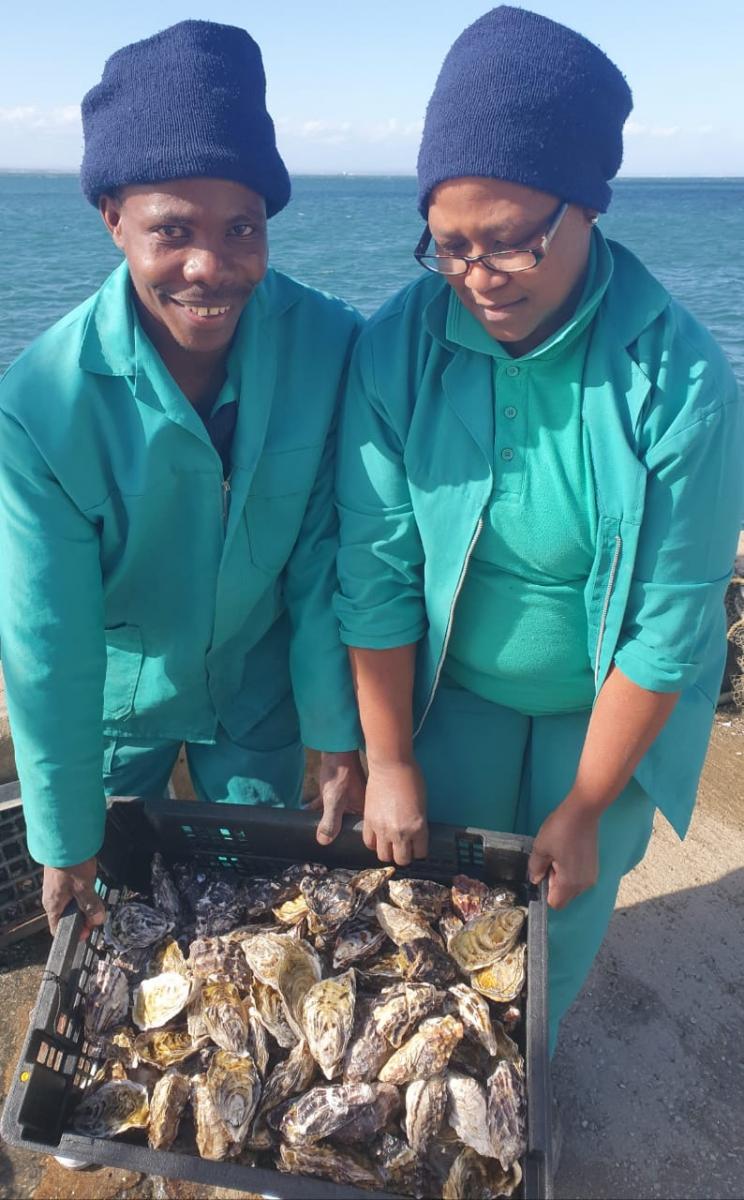 Pack Room Supervisor Mavis Tsibani (54) says working for the Knysna Oyster Company since 1989 has sustained her and helped her provide for her two children.
Pack Room Supervisor Mavis Tsibani (54) says working for the Knysna Oyster Company since 1989 has sustained her and helped her provide for her two children.
Originally established in Knysna, the company farms oysters in Nelson Mandela Bay in the Eastern Cape, using seed oysters from Namibia.
Tsibani was a general worker before becoming a supervisor.
“I think I gained the promotion through the hard work that I put in and the experience that I have. My employers trust me with the job that I am doing and I am able to teach other workers how to do the job,” she said.
This proudly South African company employs 24 permanent and 16 casual workers.
Sales and Marketing Manager John Rice said the company will recruit 10 more employees in the next six months.
“We cultivate the pacific oysters ,which are also known as crassostrea gigas, by grading and washing them every 45 to 60 days and returning them to the sea. The oysters take between six and nine months to reach market size,” said Rice.
“We generally process between 50 000 to 100 000 oysters per day,” he said.
Rice said that they sell oysters in South Africa and export them to China, Hong Kong, Taiwan, Thailand, Singapore, Mauritius and Ghana.
He said this type of business was badly affected by water pollution.
“We worked very hard with the Nelson Mandela Bay municipality to minimise the challenge. We are very strict in our testing and control process that we use to monitor the oysters,” he said.
Rice said oysters used to be a luxury product but have become a lot more accessible.
“You can now buy them from retailers and online stores. On top of that, there are now more oyster festivals which makes the product more accessible to the general public. I do not think it is an exclusive product anymore and it should not be,” he said.
He said oysters boost the immune system, help prevent cardiovascular diseases, promote blood circulation, and help increase bone mineral density, among other things.
HIV-positive woman fights negative stigma
HIV-positive woman fights negative stigma JoyDrawing on her experiences, an HIV-positive young woman is educating people about HIV. Her reassuring and positive message is that HIV can be treated and also prevented.
Mpho Mbheki (31) believes that South Africa can have an HIV-free generation if HIV-negative people avoid infection and if people living with HIV consistently take their medication and don’t infect others.
 When she was 19, Mbheki took an HIV test. She took another two tests and got the same result each time.
When she was 19, Mbheki took an HIV test. She took another two tests and got the same result each time.
“I tested positive three times in that year. I was shocked, scared and in denial. I just could not believe it was true. I had a lot of emotions. I thought my life was over because I was so young and had never thought I could be HIV-positive,” she remembered.
“I think what scared me the most was that I grew up in Butterworth, in the Eastern Cape, where people used to think that everyone who is HIV-positive got infected because they were sleeping around. It took me almost two years to accept my status. It was only after going for another test in 2009 that I got to accept my status,” she said.
Mbheki said she worried about using her antiretroviral medication (ARV).
“I feared that my body would be deformed, or that I will either get fat or lose a lot of weight. I remember collecting my medication for three consecutive months without drinking it because I was scared. I went for a number of counselling sessions at a local clinic and started drinking my medication,” said Mbheki.
Eventually, she told her family.
“I told my parents first and then I told my sisters. They were all shocked and asked me a lot of questions, but they were very supportive and soon accepted that I am living with it. However, they were not comfortable with the fact that I wanted to go public about my status. They feared that I would suffer from the stigmatisation surrounding living with the disease, but I told them nothing is going to stop me,” she said.
Mbheki says she didn’t want young girls to go through the same things that she had experienced. She wanted to encourage them to learn as much as they could about HIV and how to protect
themselves. She also wanted to help those who were HIV-positive to accept it.
A local non-profit organisation (NPO) called We Care approached her after her first few public motivational talks about living with HIV.
This gave her a platform to reach bigger audiences. She held public engagement sessions in churches and schools in her area. This encouraged many young people to test for HIV or disclose their status.
“I could not believe the feedback I was getting because I thought people would be harsh and judgemental, but they were not, although they were shocked to learn about my story,” she said.
Mbheki said she thought she would struggle to be in a romantic relationship but she needn’t have worried. Of all the people with whom she had relationships only one person was HIV-positive, the person who infected her.
Today she has a three-year-old HIV-negative child.
“When I was ready to have a child, I spoke to my partner who knows about my status and is HIV-negative and we went on to have a child,” she said.
Mbheki is the adherence counsellor at Nozuko Local Clinic in Butterworth. Her job is to assist people who find it difficult to commit to taking their HIV medication .
Curbing new infections
Besides advocating safe sex and encouraging HIV-positive people to get treatment, the National Department of Health supplies pre-exposure prophylaxis (PrEP) to select clinics to help prevent high-risk HIV-negative people from contracting the disease.
During the 9th South African Aids Conference held earlier this year, Deputy President David Mabuza said according to research, by the University of Cape Town approximately 7.4 million South Africans are HIV positive. Of these, about 4.9 million are on treatment. Government aims to increase this number by another two million people by December 2020.
For more information contact the national AIDS helpline at 0800 012 322.
Investment galore for South Africa
Investment galore for South Africa BathandwaInvestment galore for South Africa 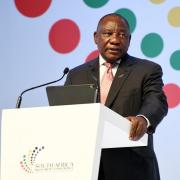
The South Africa Investment Conference generated investment commitments by South African and international investors of about R363 billion.
This annual conference was held from 5 to 7 November 2019 and aims to attract R1.2 trillion in new investments over five years. The conference took place under the theme “Accelerating Growth by Building Partnerships”.
The gathering also aimed to revitalise the country’s investment goals. Below is a map of where different businesses will be ploughing their money and creating the much-needed jobs for South Africans.
Jobs: Department of Employment and Labour - Dec 2019
Jobs: Department of Employment and Labour - Dec 2019 UrsulaAssistant Director Factory Production: Wood, Metal and Textile Production (2 posts)
Centre: SEE: Kwazulu-Natal (Durban) – Reference No: HR 4/19/09/01
SEE: Pretoria (Silverton) – Reference No: HR 4/19/09/02
Salary: Commencing: R 470 040 per annum
Enquiries: Ms. Adri Pretorius, Tel: (012) 843 7300
Head office: Chief Director: Human Resources Management: Private Bag X 117, Pretoria, 0001
Principal Inspector: Civil and Construction Engineering (15 posts)
Centre: Provincial Office: Gauteng- Ref No: HR4/4/11/20GP (2 posts)
Provincial Office: Eastern Cape- Ref No: HR4/4/12/21EC (3 posts)
Provincial Office: Western Cape - Ref No: HR4/4/19/22WC (1 post)
Provincial Office: Kwazulu-Natal- Ref No: HR4/4/20/23KZN (3 posts)
Provincial Office: Limpopo- Ref No: HR4/4/15/24LP (1 post)
Provincial Office: Mpumalanga- Ref No: HR4/4/13/25MP (1 post)
Provincial Office: North-West- Ref No: HR4/4/10/26NW (1 post)
Provincial Office: Northern Cape Cape-Ref No: HR4/4/14/27NC (1 post)
Provincial Office: Free State-Ref No: HR4/4/19FS (2 post)
Salary: Commencing: R 470 040 per annum
Enquiries: Mr T Szana, Tel. 012 309 4388
Provincial office:
Chief Director: Provincial Operations: Private Bag X 5012, Kimberly, 8301
Chief Director: Provincial Operations: Private Bag X 9368, Polokwane, 0070
Chief Director: Provincial Operations: P O Box 522, Bloemfontein, 9300
Chief Director Provincial Operations: Private Bag X 9005, East London, 5200
Chief Director: Provincial Operations: PO Box 4560, Johannesburg, 2001
Chief Director: Provincial Operations: P O Box 872 Cape Town, 8000
Chief Director Provincial Operations: Private Bag X 7263, Emalahleni, 1053
Chief Director: Provincial Operations: P O Box 940, Durban, 4000
Chief Director: Provincial Operations: Private Bag X 2040, Mmabatho, 2735
Principal Inspector: Electrical Engineering (17 posts)
Centre: Provincial Office: Limpopo- Reference No: HR4/19/11/11LP (2 posts)
Provincial Office: Kwazulu-Natal- Reference No: HR4/19/11/12KZN (4 posts)
Provincial Office: Eastern Cape- Reference No: HR4/19/11/13EC (2 posts)
Provincial Office: Western Cape- Reference No: HR4/19/11/14WC (2 posts)
Provincial Office: North-West- Reference No: HR4/19/11/15NW (1 post)
Provincial Office: Mpumalanga- Reference No: HR4/19/11/16MP (1 post)
Provincial Office: Gauteng- Reference No: HR4/19/11/17GP (2 posts)
Provincial Office: Free State- Reference no: HR4/19/11/18FS (2 posts)
Provincial Office: Northern Cape- Reference no: HR4/4/19/12NC (1 post)
Reference No: HR 4/4/6/99
Salary: Commencing: R 470 040 per annum
Enquiries:Mr. T Szana, Tel: 012 309 4388
Provincial office:
Chief Director: Provincial Operations: Private Bag X 5012, Kimberly, 8301
Chief Director: Provincial Operations: Private Bag X 9368, Polokwane, 0070
Chief Director: Provincial Operations: P O Box 522, Bloemfontein, 9300
Chief Director Provincial Operations: Private Bag X 9005, East London, 5200
Chief Director: Provincial Operations: PO Box 4560, Johannesburg, 2001
Chief Director: Provincial Operations: P O Box 872, Cape Town, 8000
Chief Director Provincial Operations: Private Bag X 7263, Emalahleni, 1053
Chief Director: Provincial Operations: P O Box 940, Durban, 4000
Chief Director: Provincial Operations: Private Bag X 2040, Mmabatho, 2735
Principal Inspector: Mechanical Engineering (17 posts)
Centre: Provincial Office: Limpopo- Reference No: HR4/19/11/31LP (1 post)
Provincial Office: Kwazulu-Natal- Reference No: HR4/19/11/32KZN (4 posts)
Provincial Office: Eastern Cape- Reference No: HR4/19/11/33EC (2 posts)
Provincial Office: Western Cape- Reference No: HR4/19/11/34WC (2 posts)
Provincial Office: North-West- Reference No: HR4/19/11/35NW (2 posts)
Provincial Office: Mpumalanga- Reference No: HR4/19/11/36MP (1 post)
Provincial Office: Gauteng- Reference No: HR4/19/11/37GP (3 posts)
Provincial Office: Free State- Reference no: HR4/19/11/38FS (1 post)
Provincial Office: Northern Cape-Reference no-HR4/19/12/39NC (1 post)
Salary: Commencing: R 470 040 per annum
Enquiries: Mr. T Szana, Tel: 012 309 4388
Provincial office:
Chief Director: Provincial Operations: Private Bag X 5012, Kimberly, 8301
Chief Director: Provincial Operations: Private Bag X 9368, Polokwane, 0070
Chief Director: Provincial Operations: P O Box 522, Bloemfontein, 9300
Chief Director Provincial Operations: Private Bag X 9005,, East London, 5200
Chief Director: Provincial Operations: PO Box 4560, Johannesburg, 2001
Chief Director: Provincial Operations: P O Box 872 Cape Town, 8000
Chief Director Provincial Operations: Private Bag X 7263, Emalahleni, 1053
Chief Director: Provincial Operations: P O Box 940, Durban, 4000
Chief Director: Provincial Operations: Private Bag X 2040, Mmabatho, 2735
Principal Inspector: Occupational Health and Hygiene (48 posts)
Centre: Provincial Office: Limpopo- Reference No: HR4/19/12/71LP (5 posts)
Provincial Office: Kwazulu-Natal- Reference No: HR4/19/12/72KZN (13 posts)
Provincial Office: Eastern Cape- Reference No: HR4/19/12/73EC (3 posts)
Provincial Office: Western Cape-Reference No: HR4/19/12/74WC (6 posts)
Provincial Office: North-West-Reference No: HR4/19/12/75NW (3 posts)
Provincial Office: Mpumalanga-Reference No: HR4/19/12/76MP (3 posts)
Provincial Office: Gauteng-Reference No: HR4/19/12/77/GP (9 posts)
Provincial Office: Free State- Reference no: HR4/19/12/78FS (5 posts)
Provincial Office: Northern Cape-Reference no-HR4/19/12/79NC (1 post)
Salary: Commencing: R 470 040 per annum
Enquiries: Mr. T Szana, Tel: 012 309 4388
Provincial office
Provincial Operations: Private Bag X 5012, Kimberly, 8301
Chief Director: Provincial Operations: Private Bag X 9368 Polokwane, 0070
Chief Director: Provincial Operations: P O Box 522, Bloemfontein, 9300
Chief Director Provincial Operations: Private Bag X 9005, East London, 5200
Chief Director: Provincial Operations: PO Box 4560, Johannesburg, 2001
Chief Director: Provincial Operations: P O Box 872 Cape Town, 8000
Chief Director Provincial Operations: Private Bag X 7263, Emalahleni, 1053
Chief Director: Provincial Operations: P O Box 940, Durban, 4000
Chief Director: Provincial Operations: Private Bag X 2040, Mmabatho, 2735
Principal Inspector: Major Hazards Installations and Explosives MHI (3 posts)
Centre: Provincial Office: Gauteng- Reference No: HR4/19/11/45GP (1 post)
Provincial Office: Kwazulu- Natal- Reference No: HR4/19/11/46KZN (1 post)
Provincial Office: Western Cape - Reference No: HR4/19/11/51WC (1 post)
Salary: Commencing: R 470 040 per annum
Enquiries: Mr. T Szana, Tel: 012 309 4388
Provincial office
Chief Director: Provincial Operations: PO Box 4560, Johannesburg, 2001
Chief Director: Provincial Operations: P O Box 940, Durban, 4000
Chief Director: Provincial Operations: P O Box 872 Cape Town, 8000
Closing date for applications: 17 December 2019 at 16:00 | Full details visit www.labour.gov.za
Applications must be submitted on a Z83 form, obtainable from any Public Service Department or on the internet at www.gov.za/documents. The fully completed and signed form Z83( Section A and B Compulsory) should be accompanied by a recently updated, comprehensive CV as well as recently certified copies of all qualification(s), academic records including a Senior Certificate and ID-document [Driver’s license where applicable](Certified copy of a copy will not be accepted). The certification must be within six (6) months as at the advert closing date. Non-RSA Citizens/Permanent Resident Permit Holders must attach a copy of their Permanent Residence Permits to their applications. Should you be in possession of a foreign qualification, it must be accompanied by an evaluation certificate from the South African Qualification Authority (SAQA) including Matric. Applicants who do not comply with the above-mentioned requirements, as well as applications received late, will not be considered. The Department does not accept applications via fax or email. Failure to submit all the requested documents will result in the application not being considered. Correspondence will be limited to short-listed candidates only. If you have not been contacted within eight (8) weeks after the closing date of this advertisement, please accept that your application was unsuccessful. Suitable candidates will be subjected to a personnel suitability check (criminal record, citizenship, credit record checks, qualification verification and employment verification). Where applicable, candidates will be subjected to a skills/knowledge test. All shortlisted candidates for SMS posts will be subjected to a technical competency exercise that intends to test relevant technical elements of the job, the logistics of which be communicated by the Department. Following the interview and technical exercise, the selection panel will recommend candidates to attend generic managerial competencies using the mandated DPSA SMS competency assessment tools. Successful candidates will be appointed on a probation period of 12 months. The Department reserves the right not to make any appointment(s) to the above post. The successful candidate will be expected to sign a performance agreement. The Department of Labour is an equal opportunity affirmative action employer. The employment decision shall be informed by the Employment Equity Plan of the Department. It is the Department’s intention to promote equity (race, gender and disability) through the filling of this post(s) with a candidate whose transfer / promotion / appointment will promote representativity in line with the numerical targets as contained in our Employment Equity Plan.
Jobs: Department of Justice and Constitutional Development - Dec 2019
Jobs: Department of Justice and Constitutional Development - Dec 2019 UrsulaDirector: Monitoring And Evaluation
Reference: 19/151/DG
Centre: National Office: Pretoria
Salary: R1 057 326 – R1 245 495 per annum. (All inclusive remuneration package) The successful candidate will be required to sign a performance agreement.
Requirements: An undergraduate qualification (NQF level 7) as recognized by SAQA or equivalent qualification; 5 years’ experience at a middle/ senior managerial level; At least 3 years in Strategic Planning or Monitoring Evaluation; Knowledge of the regulatory framework of the Public Service, the Public Finance Management Act, the Public Regulations, National Treasury Regulations and other relevant prescripts; A valid driver’s licence.
Enquiries: Ms D Modibane (012) 315 1668
Senior Audit Manager: Internal Audit
Ref No: 19/152/LA
Centre: National Office: Pretoria
Salary: R1 057 326 – R1 245 495 per annum. (All inclusive remuneration package). The successful candidate will be required to sign a performance agreement.
Requirements: An undergraduate qualification (NQF level 7) as recognised by SAQA with majors in Financial Accounting and Internal Auditing/ Auditing; 8 years’ experience in Internal Auditing environment; 5 years must be at middle/senior management level; Membership of the Institute of Internal Auditors or a recognized relevant auditing profession; A valid driver’s licence.; The following will serve as added advantage: A Certified Internal Auditor (CIA) or a recognized professional qualification; A formal qualified
Enquiries: Ms D Modibane (012) 357 1668
State Law Adviser LP7- LP8
Ref No: 19/155/SLA
Centre: Office Of The Chief State Law Adviser: Cape Town
Salary: R763 212 – R1 266 156 per annum. (Salary will be in accordance with OSD determination). The successful candidate will be required to sign a performance agreement
Requirements: LLB or 4 year recognized legal qualification; At least 5 years appropriate post qualification litigation/advisory experience; Admission as an Advocate or Attorney; Experience in Constitutional Law and Administrative Law will be an added advantage.
Enquiries: Ms P Leshilo (012) 357 8240
Senior Assistant State Attorney, (LP5-LP6)
Ref No: 19/150/SA
Centre: State Attorney: Pretoria
Salary: R510 432 – R1 192 947 per annum. (Salary will be in accordance with OSD determination). The successful candidate will be required to sign a performance agreement
Requirements: An LLB or 4 year recognized legal qualification; Admission as an Attorney; At least 4 years appropriate post qualification legal/litigation experience; A thorough knowledge of legal practice, office management, accounting systems and trust accounts; The right of appearance in the High Court of South Africa; Knowledge of the government prescripts and transformation objective as well as the Constitution of South Africa; Conveyancing experience; A valid driver’s licence.
Enquiries: Ms. Kc. Ngomani (012) 357 8661
Office Manager
Ref No: 19/153/MAS
Centre: Master of The High Court: Pietermaritzburg
Salary: R376 596 – R443 601 per annum. The successful candidate will be required to sign a performance agreement.
Requirements: Bachelor’s Degree/ National Diploma in Office Administration (NQF6) or equivalent qualification; Minimum of 3 years’ experience in administration environment; Knowledge of all legislation and policies that inform the Department’s administrative support activities; Knowledge of the core functions of the Masters Office; A valid driver’s licence.
Enquiries: Mr. S. Maeko Tel: (012) 315 1996
Assistant State Attorney, (LP3-LP4) (02 Posts)
Ref No: 19/156/SA: Centre: Durban (1)
Ref No: 19/160/SA: Centre: East London (1)
Salary: R301 452 – R847 047 per annum. (Salary will be in accordance with OSD determination). The successful candidate will be required to sign a performance agreement.
Requirements: An LLB or 4 year recognized legal qualification; Admission as an Attorney; At least 2 years appropriate post qualification legal/litigation experience; Right of appearance in the High Court of South Africa; Conveyancing experience will be an added advantage; A valid driver’s licence.
Enquiries: Mr. M. Kooko (012) 315 1164 and Mrs. K. Ngomani (012) 357 8661
Assistant State Attorney, Conveyancing, (LP3-LP4)
Ref No: 19/157/SA
Centre: State Attorney: Cape Town
Salary: R301 452 – R847 047 per annum. (Salary will be in accordance with OSD determination). The successful candidate will be required to sign a performance agreement.
Requirements: An LLB or 4 year recognized legal qualification; Admission as an Attorney; At least 2 years appropriate post qualification legal/litigation experience; Admission as a conveyancer and notary will be an added advantage; A valid driver’s licence.
Enquiries: Mr. E. Seerane (012) 315 1780
Maintenance Officer (MR1-MR5) (2 Posts)
Ref No: 2019/67/MP; Centre: Ermelo Magistrate Office
Ref No: 2019/68/MP; Centre: Mkobola Magistrate Office
Salary: R198 411 – R502 893 per annum. (Salary will be in accordance with OSD determination). The successful candidate will be required to sign a performance agreement.
Requirements: LLB Degree or Recognized 4 Year Legal Qualification.
Enquiries: Ms. NC Maseko (013) 753 9300 Ext.224
Social Worker/Family Counsellor Grade 1-4
Ref No: 49/19/NC
Centre: Family Advocate: Kimberley
Salary: R198 411 – R351 795 per annum. (Salary will be in accordance with the OSD determination).The successful candidate will be required to sign a performance agreement.
Requirements: Bachelor’s Degree in Social Work or equivalent qualification which allows for professional registration with the SACSSP (SA Council for Social Service Professions); A minimum of 0 – 30 years appropriate experience in Social Work after registration as Social Worker with the SACSSP; Knowledge and experience in Mediation; Knowledge and application of Family Law, including Mediation in certain Divorce Matters Act, Maintenance Act and Domestic Violence Act (inclusive of Hague Convention on International Child Abduction); A valid driver’s licence.
Enquiries: Mr M Sikhweza (053) 8331062
Social Worker / Family Counsellor Grade 1-3 (2 Posts)
Ref no: 2019/71/MP
Centre: Office of The Family Advocate: Nelspruit
Salary: R198 411 – R293 940 per annum (Salary will be determine according to OSD determination). The successful candidate will be required to sign a performance agreement.
Requirements: Bachelor Degree in Social Worker or equivalent equalization which allows for professional registration with the SACSSP (SA Council for Social Service Professions); , A minimum of 0 - 20 years appropriate experience in Social Work after registration as Social Worker with the SACSSP. Knowledge and experience in Mediation ,court experience in rendering expert evidence , Knowledge and application of Family Law ,including Mediation in certain Divorce Matter Act , Children’s Act ,Maintenance Act and Domestic Violence Act ,(inclusive of Hague Convention on International Child Abduction ) A valid driver’s licence.
Enquires: Mr LT Mndebele: (013) 7539300
Estate Controller Ec1 (02 Posts)
Ref No: 19/159/MAS
Centre: Master Of The High Court: Grahamstown
Salary: R198 411 – R293 940 per annum. (Salary will be in accordance with OSD determination). The successful candidate will be required to sign a performance agreement.
Requirements: An LLB degree or recognized four years legal qualification.
Enquiries: Mr. C. Msiza (012) 315 4754
Closing Date: 02 December 2019
Note: Applications must be submitted on Form Z83, obtainable from any Public Service Department or on the internet at www.gov.za. A Z83 form & CV must be accompanied by original certified copies of qualifications, identity document and a driver’s license where necessary. A SAQA evaluation report must accompany foreign qualifications. Applications that do not comply with the above mentioned requirements will not be considered. All shortlisted candidates for SMS posts will be subjected to a technical and competency assessment. Candidate will complete a financial disclosure form and also be required to undergo a security clearance. Foreigners or dual citizenship holder must provide the Police Clearance certificate from country of origin.
The DOJ&CD is an equal opportunity employer. In the filling of vacant posts the objectives of section 195 (1) (i) of the Constitution of South Africa, 1996 (Act No: 108 of 1996), the Employment Equity imperatives as defined by the Employment Equity Act, 1998 (Act No: 55 of 1998) and relevant Human Resources policies of the Department will be taken into consideration. Reasonable accommodation shall be applied for People with Disabilities including where driver’s license is a requirement. Correspondence will be limited to short-listed candidates only. If you do not hear from us within 3 months of this advertisement, please accept that your application has been unsuccessful. The department reserves the right not to fill these positions. Women and people with disabilities are encouraged to apply and preference will be given to the EE Target.
Tel: 012 315 1111 Private Bag X81, Pretoria, 0001 Momentum Centre, 329 Pretorius Street, Pretoria www.justice.gov.za @DOJCD_ZA at DOJCD
Lessons make kids water-wise
Lessons make kids water-wise UrsulaLerato Ramatsa from Bloemfontein is teaching children water safety and how to swim, to reduce their risk of drowning. 
Concerned about the number of child drownings in Thaba Nchu and Botshabelo, Ramatsa established Deep Water Aquatics Swimming Lessons in 2010. She started giving free lessons to children from previously disadvantaged backgrounds in 2017.
She teaches 20 children, from the age of eight, at a swimming pool in Bloemfontein.
“I have a strong desire to see these children participating highly in the sport and being world-class swimmers. There needs to be equal opportunities for children, regardless of their backgrounds, to participate in swimming,” said Ramatsa.
Parents also attend the classes, which has had a positive impact on the children’s lives by improving their confidence and their relationships with their parents.
Deep Water Aquatics Swimming Lessons hosted a community outreach programme in Botshabelo during the Easter holidays, called Pool Splash. More than 300 children learnt about water safety and how to swim.
Ramatsa is passionate about sport and transformation. “The biggest challenge is transformation. Remember, swimming is predominately a white sport and the participation of black kids is minimal, hence we have to have capacity building programmes and many outreach programmes.
“Our plan is to have as many black people as possible participating in the sport. We want to create swimming champions that come from Mangaung. We also want our people to learn how to swim as a lifesaving skill,” added Ramatsa.
Tips to prevent drowning
- Never leave children in or by the pool unsupervised.
- Parents must pay attention when children are in a pool.
- Warn children against swimming in filthy water that could be a health hazard.
- Warn children to avoid pool drains.
- Empty portable pools when not in use.
- Don’t let children swim at night.
- Don’t let children eat while in a pool.
Let’s talk about sex baby
Let’s talk about sex baby BathandwaOratilwe Moerane (19) learnt at the age of 17, when she gave birth to her son Keitumetse, how difficult being a young mother is.
She said the pregnancy shattered her dreams.
 Motherhood meant she had to leave school in Grade 10 so that she could look after her son. Moerane said: “Having to drop out of school, I had to hustle hard to provide for my son.”
Motherhood meant she had to leave school in Grade 10 so that she could look after her son. Moerane said: “Having to drop out of school, I had to hustle hard to provide for my son.”
Although Moerane regrets having sex at a young age, she does not regret being a parent to her son, Keitumetse. "Motherhood has taught me a lot of valuable lessons."
She advises other teenagers to avoid having sex. Moerane said if teenagers have sex they have to use contraceptives. These are freely available at government health facilities.
“When you go to the clinic to get contraceptives society will sometimes shame you, but you must remember that you are doing it for you.
“Both boys and girls are responsible for using contraception, such as condoms to protect themselves against pregnancy and illnesses,” she said.
Let's Talk Prevention of Early and Unintended Pregnancies
The Department of Basic Education (DBE) and the United Nations Educational, Scientific and Cultural Organization (Unesco) have launched the Let’s Talk Prevention of Early and Unintended Pregnancies (EUP) campaign.
It aims to make schools the foreground in the fight against teenage pregnancy and the spread of HIV in adolescents.
Unesco’s National Programme for Health and HIV Coordinator Buyiswa Mpini said the campaign works with schools to teach pupils, from adolescence, about the
risks posed by unprotected sex. “The programme works with schools to teach teachers about how to engage the topic of EUPs and sex-related lessons,” said Mpini.
Schools interested in joining the programme can contact the Department of Education or Unesco.
Did you know?
Public healthcare clinics make counselling and contraceptives freely available. Contraceptives include:
- Condoms
- Hormone patches that thicken cervical mucus to stop sperm from entering a woman’s womb
- Oral contraception, also known as the pill.
- Women can be injected with Nur-Isterate and Depo Provera every two months, or Petogen (DMPA) every three months. An intrauterine device, also known as the loop, can prevent pregnancy for about five years and can be removed at any time.
- The IMPLANON contraceptive is placed under the skin on the inside of the upper arm.
Mpumalanga gets its first high court
Mpumalanga gets its first high court JoySome of the duties of the new Mpumalanga High Court will be to hear appeals from people or organisations that are not happy with a Magistrates' Court decision.
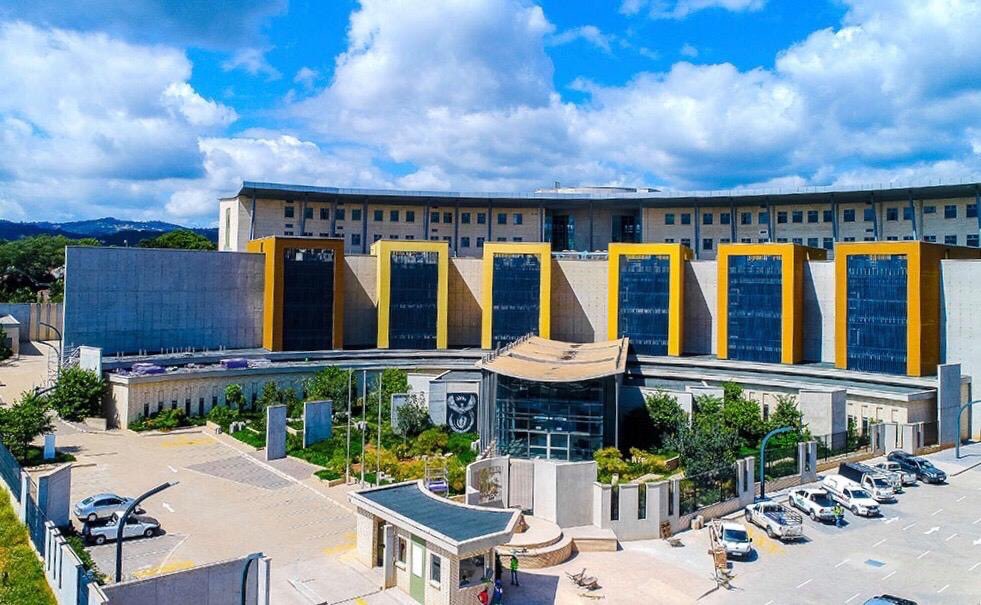 Desmond Mokoena (28) from Hazyview in Mpumalanga is delighted that the province finally has its own high court in Mbombela (Nelspruit). For the past 25 years, Mpumalanga was the only province without a high court.
Desmond Mokoena (28) from Hazyview in Mpumalanga is delighted that the province finally has its own high court in Mbombela (Nelspruit). For the past 25 years, Mpumalanga was the only province without a high court.
The nearest high court was in Pretoria, which made access difficult and costly.
“This is a really good thing for the people in the province. This will allow people and those wanting to support them to go to the court. In the past, one of my relatives had an estate-related dispute with her in-laws and we were not able to be there for her as the matter sat in Pretoria,” he said.
Mokoena said having the court in Mpumalanga’s commercial hub means that people who work in Nelspruit no longer need to miss work to go to court.
The court was also designed to protect the identities of victims of Gender-Based Violence (GBV), so that they can access the justice system without fear.
Mokoena said that the high rate of GBV and violent crimes in society necessitated having the court nearby to deal with such matters.
“Until now, citizens whose matters fell outside the jurisdiction of the local magistrate’s courts had to obtain relief in the high court in Pretoria. This caused considerable inconvenience, delays and financial hardship,” said President Cyril Ramaphosa at the court’s official opening recently.
The court building has 12 courtrooms, including a room specifically for use by specialised high courts such as the Labour Court and the Land Claims Court. The President said the court will also help strengthen the work of the Family Advocate’s Office.
Mzansi Fela Festival offers packed programme
Mzansi Fela Festival offers packed programme UrsulaThe 12th edition of the Annual Mzansi Fela Festival has a varied programme that sees the performing arts casting the spotlight on serious social issues. The nine-act lineup offers a range of productions.
The State Theatre will raise the curtain on the 12th Annual Mzansi Fela Festival on 1 December, World Aids Day. 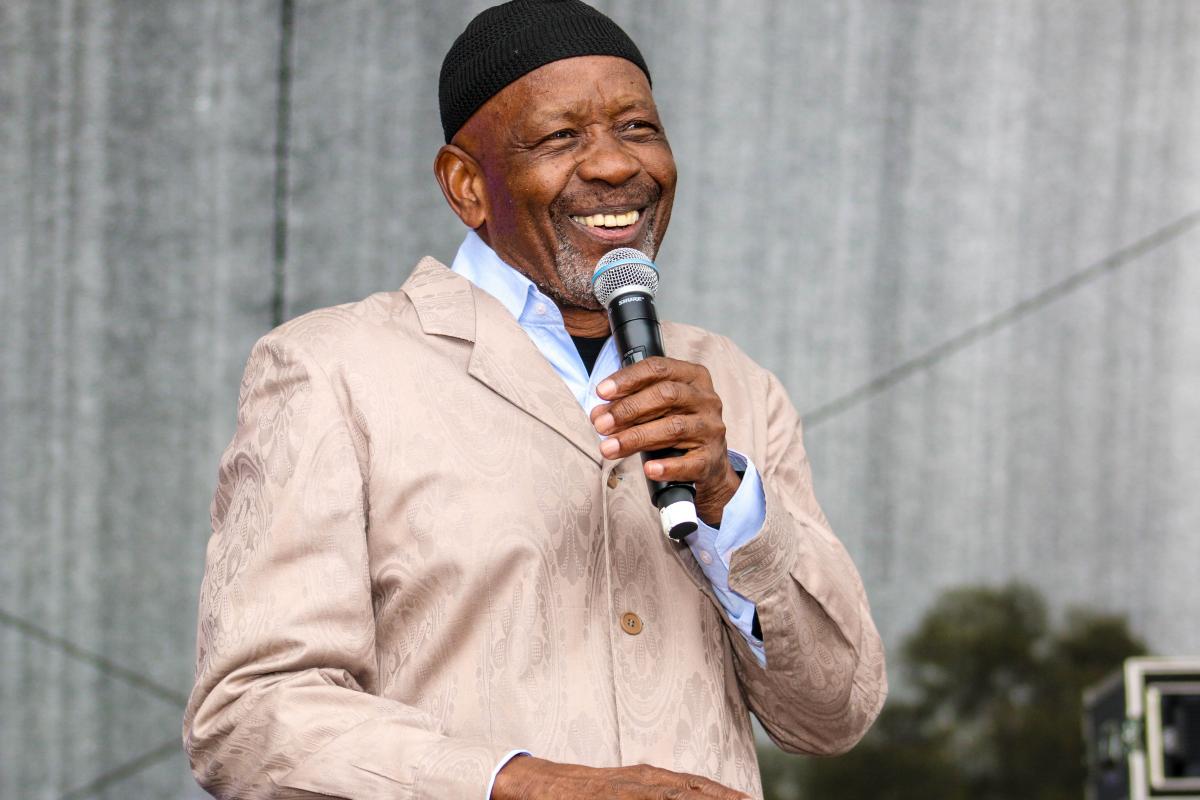
Popular musicians Zonke, Thandiswa Mazwai, Caiphus Semenya, Samthing Soweto and Ringo Madlingozi will headline the event which will run from 1 to 22 Dcember.
At the start of the festival there will be a moment of silence for World Aids Day and in recognition of the HIV and AIDS pandemic.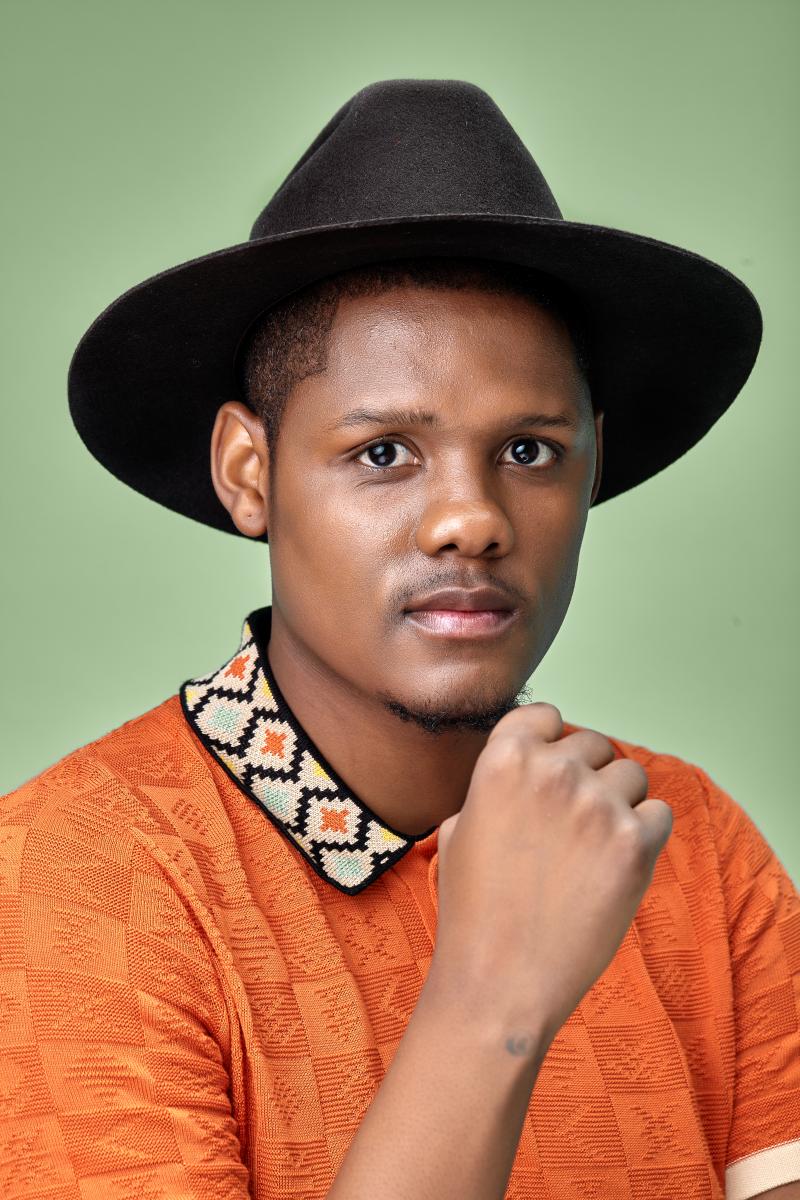
State Theatre Artistic Director Aubrey Sekhabi said the festival has many components. There will also be theatre performances, music, book launches, lectures about the arts and a programme for 16 Days of Activism for No Violence Against Women and Children. "This will contribute to national efforts to fight the scourge of Gender-Based Violence and Femicide (GBVF)", Sekgabi said.
In addition, campaigns of 16 Days of Theatre Activism against Gender-Based Violence will start on 24 November and end on 10 December.
Sekgabi said the festival promotes social cohesion and domestic tourism by profiling South African work in the arts space.
“When people come into the city around the festive season they are able to enjoy the content that is locally produced. The festival attracts people from all walks of life and a lot of people can relate through music,” he said.
Programme guide
- Zonke| 1 December| Tickets range between R300-R500.
- CADO| 1-13 December|Tickets are R30.
- Kwanele| 1 – 15 December|Tickets are between R100-R150.
- Simphiwe Dana Symphony Experience| 07 December| Tickects are between R500-R1000.
- Caiphus Semenya| 8 December |Tickets are between R250-R400.
- Hillsong| 9- 13 December|Tickets R50.
- Thandiswa Mazwai| 13 December |Tickets are between R200-R350.
- Samthing Soweto and Ringo Madlingozi| 22 December|Tickets are between R200-R300.
- 16 Days of Theatre Activism Against Gender Based Violence| 24 November- 10 December|Tickets are R100.
- Tickets are obtainable at Webticket and over the counter at Pick n Pay outlets nationwide.
NPO’s garden gives hope to Cape community
NPO’s garden gives hope to Cape community tsoana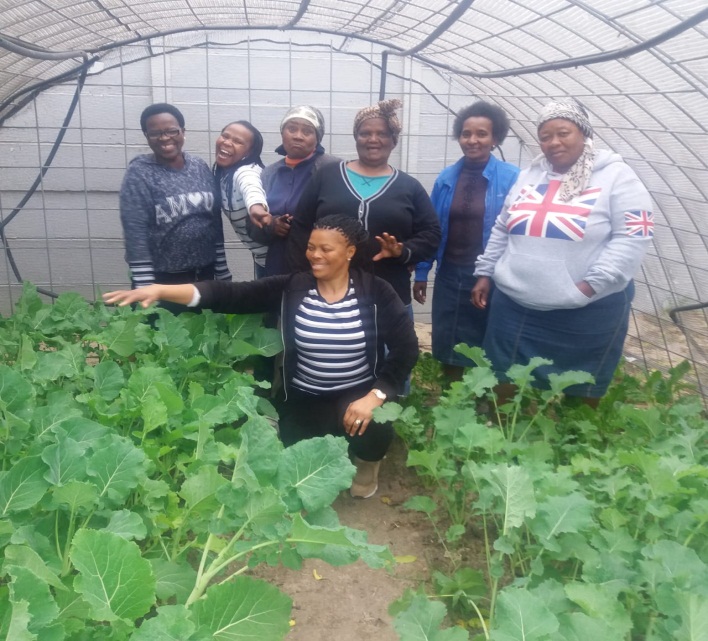 A township-based NPO is spreading peace and hope through its empowerment programmes, food garden and soup kitchen, which plays a critical role in addressing hunger in its community.
A township-based NPO is spreading peace and hope through its empowerment programmes, food garden and soup kitchen, which plays a critical role in addressing hunger in its community.
Residents of Mfuleni township in the Western Cape have seen a reduction in crime, thanks to Women of Peace’s food security and organic vegetable production project.
The non-profit organisation (NPO) also contributes to community development through skills training for women and supports unemployed youth and school children.
Women of Peace’s Garden Co-ordinator Zoleka Gomo (45) said in the past, crime and substance abuse was rife in the area, with even its own community centre being vandalised on several occasions.
“We decided to start a soup kitchen to feed the community and saw an end to the burglaries because, in most cases, crime is borne of poverty,” she said.
The soup kitchen serves children from the community who benefit from the NPO’s after-care programme, youth who participate in its skills training programme and poor families in the community.
Gomo’s food garden supplies the produce needed to sustain the soup kitchen. Organic spinach, cabbage, carrots, onions and beetroot are produced on a 0.020 hectare patch of land and, according to Gomo, 95 people are fed each day.
The garden has flourished with a little help from the Western Cape Department of Agriculture, which donated seeds, shade nets and an irrigation system that has helped them during times of drought.
The NPO’s community upliftment programmes include arts and crafts, embroidery, ballroom and Latin dancing, reading and homework study areas, chess and sports, explained Gomo.
“The skills development programmes have helped some of the youth find jobs and also helps keep them occupied and away from social ills,” she said.
She added that at any given time, 20 to 30 people take part in skills training courses and, they are fed by the soup kitchen.
Women of Peace was started in Johannesburg in 1976 with the aim of assisting the disadvantaged, Gomo said.
Gomo was this year honoured at the Female Entrepreneur Awards hosted by the Department of Agriculture, Forestry and Fisheries, winning the Best Subsistence Producer prize.
New investments committed to South Africa
New investments committed to South Africa BathandwaThe commitments made at the first and second South Africa Investment Conference have placed South Africa firmly on the path to achieving its ambitious target of securing R1.2 trillion in investments over five years.
President Cyril Ramaphosa confirmed this during his closing remarks at the Second South Africa Investment Conference, which took place at the Sandton Convention Centre in Johannesburg from 5 to 7 November 2019.
The President first announced the investment conference initiative in his 2018 State of the Nation Address and the first conference was held shortly thereafter.
At the opening of the 2018 conference President Ramaphosa announced government’s objective to raise R1.2 trillion in new investments, to address low economic growth and reduce unemployment. Local and international investors heeded the call, with just under R300 billion in investment announcements secured.
This year’s conference saw another R363 billion in investment commitments made to South Africa. “We also received indications of a further R8 billion in planned investments that are subject to regulatory or company board approvals. This commitment of investments of R371 billion is 17 percent higher than the commitments made last year,” the President confirmed.
“It is estimated that these investments will lead to the creation of 412 000 direct jobs over the next five years. This does not include the hundreds of thousands of indirect jobs that will be created through allied linkages to these investments,” he said.
Of the 31 projects announced last year, eight have been completed and 17 are in the construction or implementation stages. This represents R238 billion of the investments that were announced in 2018. “It is gratifying to see the commitments made at this conference last year materialising in the form of new factories, production lines, products, services and jobs,” said President Ramaphosa.
Investment needed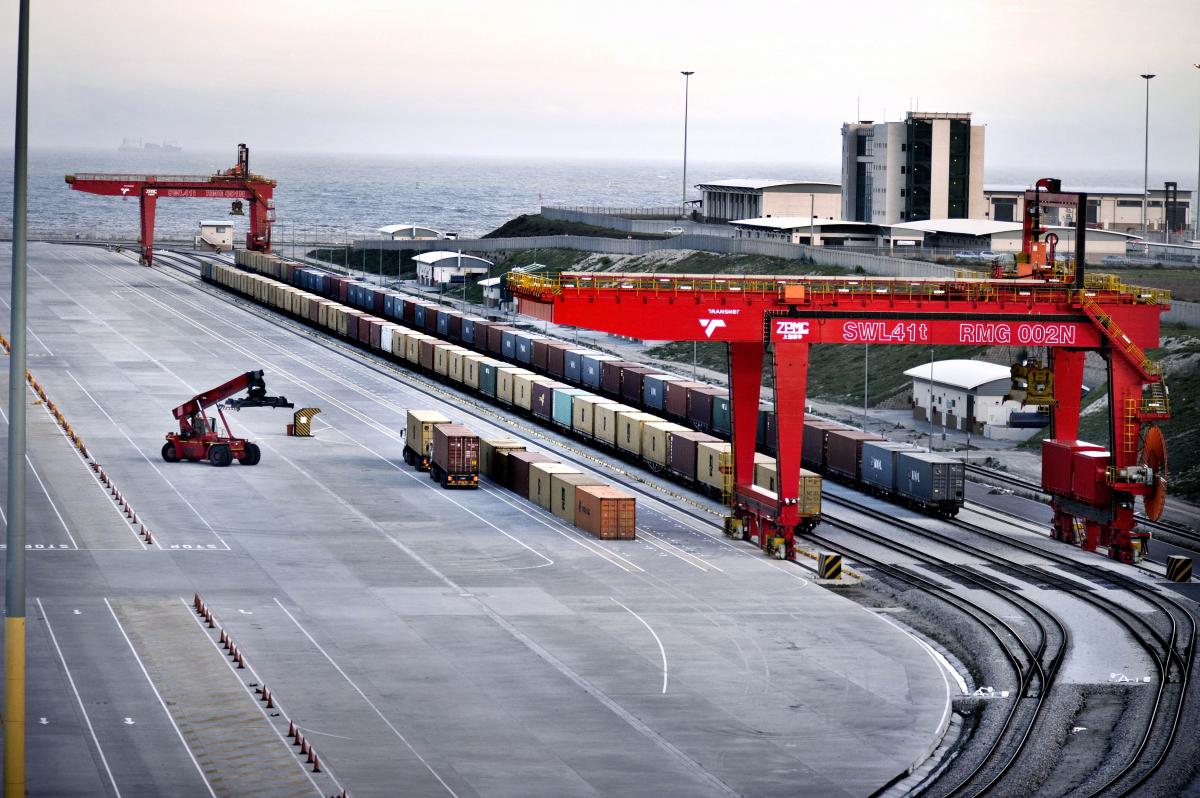
The conference brings leaders from business, government and the investment community together to forge relationships and explore ways to reignite growth in South Africa.
“Over the past decade our economy has barely grown, investment has dwindled and the rate of unemployment has increased. We are still feeling the effects of several years of state capture and corruption, the erosion of important public institutions and the resultant policy malaise,” said President Ramaphosa.
“It is for this reason that government reached out to our social partners to forge a new compact for growth and development. And it was through this collaboration that we identified several major issues we must address to achieve the economic recovery that we all seek,” he added.
The President confirmed that progress has been made in implementing policy reforms that he spoke about at the 2018 conference, which has created policy certainty, consistency and predictability for investors and citizens. “Central to our efforts to ignite growth and create jobs is an ambitious, execution-oriented industrial strategy, founded on partnerships between government, labour and industry,” the President explained.
At the 2019 conference, masterplans were signed for the poultry and clothing, textile and footwear industries. “This will lead to the giant retailers in our economy increasing local procurement, investment and job creation,” the President confirmed.
As a major boost to manufacturing, localisation and job creation, nine companies have confirmed their intention to set up factories by January 2021. “This will entail an investment of R3.6 billion and the creation of 6 700 direct jobs, consolidating South Africa’s position as the auto-hub of the African continent,” the President said.
Presidential Investment Envoys
The President said that the progress that has been made since the 2018 conference owes much to the hard work of the four Presidential Investment Envoys he appointed to spearhead government’s efforts – Jacko Maree, Phumzile Langeni, Trevor Manuel and Mcebisi Jonas.
“I wish to express my profound gratitude to them for the dedication and determination with which they have undertaken this task,” said President Ramaphosa. To strengthen this work, the President has appointed additional special envoys to focus on specific investment areas, namely Jeff Radebe, who will focus on oil and gas, and Derek Hanekom and Elizabeth Thabethe, who will focus on tourism.
“The investments are a clear vote of confidence in the South African economy and a response to what it can offer. But more importantly, it is a sign of confidence in the future of our country and the belief that the South African economy is poised for growth going into the future,” the President said. SAnews.gov.za
Njenga’s farming business ready to prosper!
Njenga’s farming business ready to prosper! JoyKhutso Njenga (27) only started farming in 2018, when he joined his uncle’s business TechFarma. But just over a year later, the passionate young farmer is already a finalist in the South African Breweries (SAB) Urban Agriculture programme.
Njenga, from Soshanguve in Tshwane, runs a 24-hectare farm where he and his team grow cucumbers, peppers and tomatoes in greenhouse tunnels. He said when he decided to join his uncle in the world of farming, he immediately fell in love.
Recently, Njenga and his team harvest 3 750 cucumbers and deliver them to the Fresh Produce Market in Tshwane.
“I became a farmer to create jobs for others and to make sure people have access to fresh, nutritious and affordable vegetables,” Njenga said.
Njenga’s passion paid off when he was announced as one of the nine finalists of the SAB Urban Agriculture programme. The initiative is part of SAB’s flagship youth entrepreneurship programme SAB Kickstart, which invests in youth businesses.
Njenga and the other finalists first went through a ‘boot camp’ which provided skills training, fieldwork and site visits, led by experts in agriculture. The finalists will also complete a 15-month business development programme which provides technical and operational training, hydroponic infrastructure investment, mentorship and access to markets.
“I am extremely thankful for this wonderful opportunity. It is not every farmer who gets to be given such valuable assistance,” said Njenga.
Phumzile Chifunyise, SAB Enterprise Development Manager, said the Urban Agriculture programme looks to remove the barriers of entry into the agriculture field for young farmers.
“As an organisation that is embedded in agriculture, our intention is to attract young people to the sector by alleviating the high barriers to entry such as technical and operational resources.”
Chifunyise said hydroponic technology – the process of growing plants with added nutrients but without soil – is a highly useful way for farmers to grow their businesses. “We are growing the presence of young farmers through the application of hydroponic technology to scale their business and link them to markets.”
The business development programme will be carried out with the help of training organisation Made with Rural, which has designed an agribusiness development programme.
If you are an emerging farmer or entrepreneur looking for business support, call SAB Entrepreneurship toll free on 0800 611 095
Preventing HIV with PrEP
Preventing HIV with PrEP JoySouth Africans' chances of contracting HIV have been drastically reduced, thanks to the Pre-Exposure Prophylaxis (PrEP) programme currently being rolled out by the Department of Health (DOH).
 South Africa become the first country in sub-Saharan Africa to approve the use of PrEP.
South Africa become the first country in sub-Saharan Africa to approve the use of PrEP.
PrEP is a combination of two HIV medications, which should be taken daily to prevent HIV infection.
What is PrEP?
PrEP can be explained a little better by breaking down each word of the name;
Pre = before
Exposure = coming into contact with HIV
Prophylaxis = treatment to prevent an infection from happening.
HIV-negative people from high risk groups can use PrEP to avoid being infected with HIV.
Why was PrEP introduced?
The World Health Organization (WHO) first approved the treatment in 2015. The WHO recommended that people with a substantial risk of HIV infection should use PrEP daily as part of a combined HIV prevention strategy. When taken correctly, the treatment has been 99 percent successful in reducing the risk of getting HIV.
Government recognised the value of adding this proven prevention method to the other extensive programmes in place to combat the disease.
South Africa has one of the highest HIV and AIDS burdens in the world.
The DOH first rolled out PrEP to 11 clinics in five provinces in 2016. The rollout has been progressing steadily, with about 36 000 people now receiving PrEP treatment.
Who should take PrEP?
PrEP treatment is an option available for people who find themselves at risk of possibly contracting HIV. The DOH has identified several groups of people who are most vulnerable:
Sex workers
The department has estimated that 20 percent of the approximately 350 000 people who are infected with HIV every year are connected with sex work. Female sex workers are
especially at risk, with 33 percent of them being infected with HIV by the age of 24, while as many as 80 percent are infected after the age of 25. The department said that these high rates confirm the urgency of using PrEP amongst members of this group, especially because of issues such as high rates of Gender-Based Violence and rape, and a lack of legal protection. Several PrEP rollouts have been completed or are underway in areas where sex workers operate.
Girls and young women
Girls and women between the ages of 15 and 24 are also at risk of contracting HIV. This is due to several reasons including having sex with older infected men, low condom use, limited power in controlling safe sex practices, and sexual and Gender-Based Violence.
Men who have sex with men
The department notes that men who have sex with other men are especially at risk because they may also be involved in other risky behaviours such as injecting drugs and selling sex. In trials, it has already been proven that offering PrEP to these groups has shown the largest impact in preventing HIV infection.
Sexual partners of HIV-positive people
Some couples find themselves in a situation where one partner is HIV-positive and the other is negative. In many cases, this can occur without either partner knowing that one of them is HIV-positive. Providing antiretroviral treatment to the infected partner can reduce the risk of transmission by 96 percent, while PrEP for the uninfected partner can reduce their risk by 75 percent.
Does PrEP have side effects?
Some people may experience side effects when they start PrEP. The most common side effects include:
- Nausea
- Headache
- Tiredness
- Diarrhoea
- Depression
- Abnormal dreams
- Vomiting
- Rash
- Problems sleeping
- Changes in appetite
In most people, these side effects go away after a few weeks.
Where can you get PrEP?
Free PrEP is currently available at 108 sites around the country.
For more information logon to, www.myprep.co.za. You can also call the National HIV and AIDS Helpline toll-free at 0800 012 322.
*This information was supplied by the National Department of Health
Did you know?
The Department of Health makes it clear that PrEP should not completely replace other effective and well-established HIV prevention techniques. PrEP studies have all been based on a combined approach to prevention, including regular testing and use of condoms and other contraceptives. These should still be used with PrEP treatment.
Rape explained
Rape explained JoySexual intercourse with another person without mutual consent is rape, says South African Police Service (SAPS) spokesman Vish Naidu.
He says the law classifies it as rape even when the people involved are lovers or a married couple.
 “Rape is having unlawful and intentional sexual intercourse with a male or female without his or her consent,” says Naidu.
“Rape is having unlawful and intentional sexual intercourse with a male or female without his or her consent,” says Naidu.
Consent is important in determining whether rape occurred.
Brigadier Vuyelwa Pudumo of the SAPS Family Violence, Child Protection and Sexual Offences (FCS) units says: “If the complainant [whether male or female] says no to sexual intercourse it means no consent was given. It is all about whether consent was given or not."
Naidu said that even if the perpetrator was invited into the home of the victim as long as there is no consent it is rape.
“It doesn’t matter whether they have known each other for 10 or 15 years. If there is no consent then that is rape.''
He said that even if a couple had initially started having sexual intercourse and one changed their mind mid-act it was rape if the other person insisted on continuing. It is sexual assault when someone insists on having sex but no genital penetration occurs.
A rape conviction can mean a minimum sentence of 25 years’ imprisonment or a life sentence.
After being raped a victim must not bath or shower. This is to preserve DNA evidence left by the rapist. Report the rape at the nearest police station as soon as possible.
“There is no time frame however it is crucial to report within 72 hours for collection of evidence,” Pudumo said.
To report rape or sexual assault call the SAPS on 10111 or go to the nearest police station.
Santa Shoebox says no to violence
Santa Shoebox says no to violence tsoanaThe much-loved Santa Shoebox Project will spread more than just joy to thousands of children this festive season.
Almost one million children have benefitted from the project since 2006.
The Santa Shoebox Project reaches over 1 000 facilities in South Africa and Namibia yearly.
This year the Santa Shoebox Project and independent publishers, Hero in My Hood, created an activity book that educates children about bullying and violence against women and children.
The activity book was developed with psychologists, doctors, social workers and gender activists.
“We chose freestyle soccer as the theme as it is an activity that is traditionally seen as for boys, but one in which girls are just as active,” said Hero in My Hood Co-founder Mandy Lomberg.
“You will see many clues throughout the book that challenge gender stereotypes. In our story the children of a neighbourhood come together as themselves and shine as a team, ‘The Freestyle Stars’,” she said.
Lomberg added that the book encourages children to ‘tell’ and to ‘talk’, breaking the silence that allows negative behaviour to continue. The story guides the children to find something that they enjoy and can do well, to help build self-esteem.
“The Santa Shoebox Project is very proud to have collaborated with Hero in my Hood on their book about bullying and gender-based violence", said Santa Shoebox Project CEO Deborah Zelezniak.
The Santa Shoebox Project allows donors to choose their child by name, age, gender and area.
“The items we specify for each shoebox are toothpaste, toothbrush, soap, facecloth, sweets, school supplies, a toy and an outfit of clothing. These are items of upliftment, empowerment and self-esteem,” said Zelezniak.
Every April, the Santa Shoebox website opens for applications from facility caregivers at places like crèches, schools, places of safety and community groups. Apply at www.santashoebox.org.za.
WhatsApp or SMS 076 491 2407 for more information.
Soft drinks earn hard cash
Soft drinks earn hard cash UrsulaBuying locally manufactured goods and services is a recognised contributor to job retention and job creation. 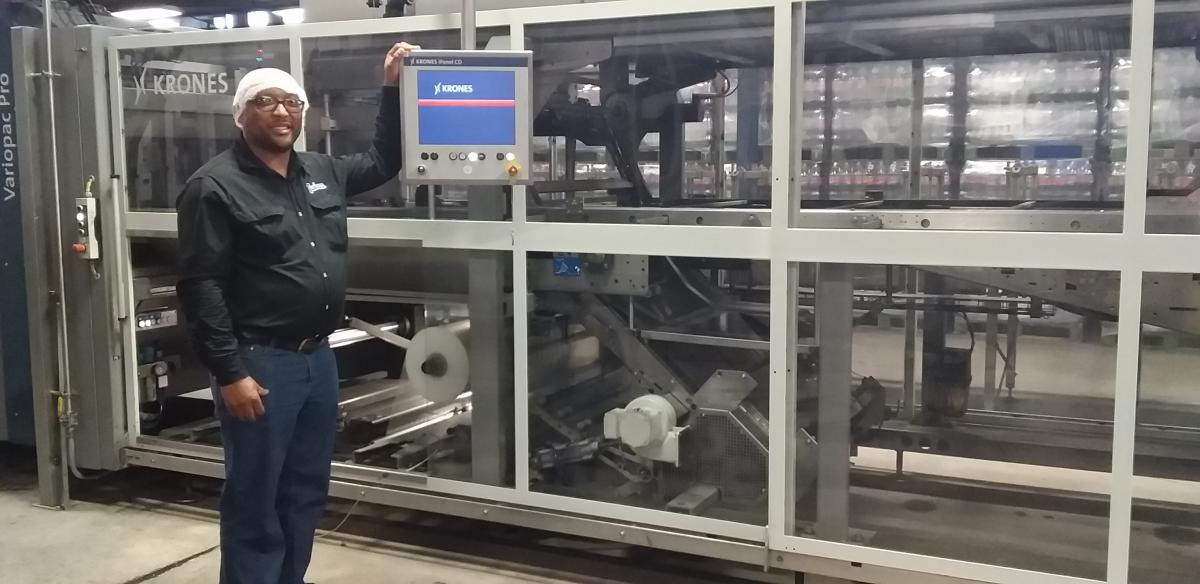
Mzolisi Dubula (42) from Ezibeleni township in Queenstown in the Eastern Cape works for Twizza, a local brand.
It produces a wide range of carbonated soft drinks, sparkling water and still water. Its main plant is in Komani Industrial Park in Queenstown and it has branches in Middelburg, in Mpumalanga, and Cape Town in the Western Cape.
“I started working for Twizza in December 2013. Working for the company has been an eye-opening experience because I have developed from being an operator to a supervisor, and now I am the production filling unit manager at the company,” said Dubula.
Nine family members directly depend on him for financial support.
“I take pride in knowing that our product is out there and it competes with the bigger brands,” he said. 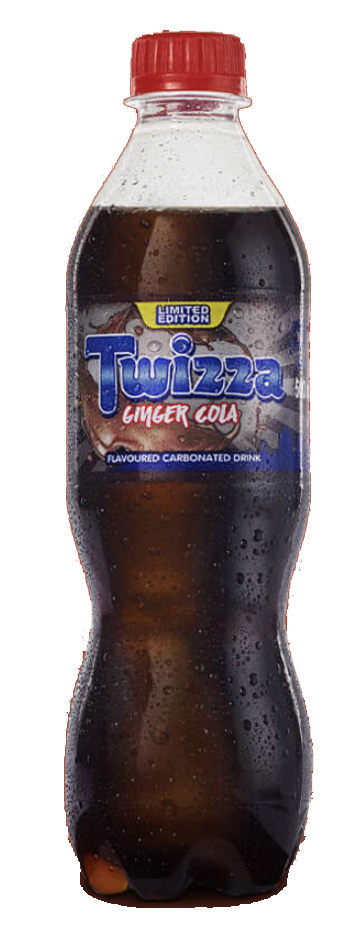
Chief Financial Officer of the company Nico de Jager said Twizza was established in 2003 by Ken Clark, who had stumbled upon soft drink manufacturing equipment.
He said in the early years the company had under ten employees and produced 2 000 litres of fresh milk a day, which it supplied to a local cheese factory.
Today the company employs close to 1 000 people in three of its plants.
“We believe that for every person working at our company, we support about 10 other people through that person,” he added.
He said the Twizza factory’s state-of-the-art equipment can produce 23 300 bottles per day. Twizza is distributed in South Africa, Lesotho, Swaziland, Namibia, Botswana and Mozambique.
Did you know?
Proudly SA is the country’s official buy local advocacy campaign, partly funded by the Department of Trade and Industry.
To sign up for membership, visit www.proudlysa.co.za or call 011 327 7778.
Solar energy has a bright future
Solar energy has a bright future tsoanaSA Investment Conference
Southern Africa has abundant sunshine that can be used to provide electricity. Solar power is especially suitable for communities in rural areas. A local company is proving how it can help disadvantaged communities.
Power outages in South Africa have had a wide-ranging impact on the country’s fragile economic growth prospects.
In times of unreliable power supply, consumers are often left to scour for alternatives. These are generally unaffordable.
Lamo Solar, black-owned solar energy company based in Fourways Gauteng, received a stamp of approval from President Cyril Ramaphosa who recently lauded the six-year-old company’s innovative business.
Speaking on the sidelines of the second South Africa Investment Conference held in Johannesburg recently, the company’s Chief Executive Officer and co-founder, Tshibvumo Sikhwivhilu (30), outlined what the company aims to achieve.
Energy for rural communities
Lamo Solar provides robust, cost-effective solar photo-voltaic (PV) energy solutions that provide electricity to beneficiaries when Eskom cannot meet demand.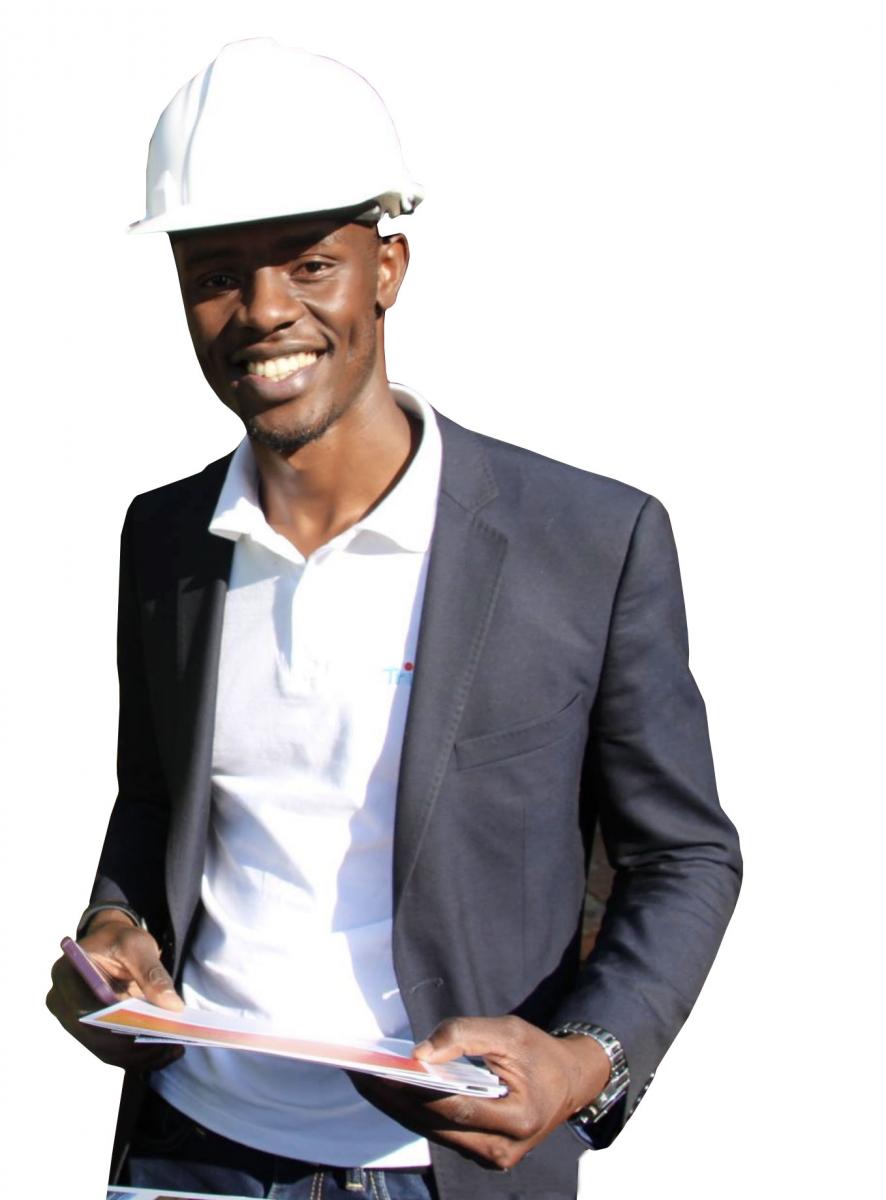
“Lamo Solar was founded with the sole intention of increasing access to electricity to predominantly rural parts of not only South Africa but also Sub-Saharan Africa,” explained Sikhwivhilu.
The business was founded in 2013 as a spin-off from a final year project with friend and business partner, Elmond Khoza. The two electrical engineering students today employ 12 people – six of them women.
“What gives us a good competitive advantage over other competitors in other parts of the world in the sector is that South Africa, and Africa as a continent, has some of the best sun radiation compared to other parts of the world,” he said.
“It gives us a favourable advantage using the very same technology that exists in Europe or Asia, but being applied in conditions that are better suited than they were designed or manufactured. That is where we source our competitiveness from. We are operating in a very conducive environment. Our resource is the sun, which is abundantly available on the Africa continent.”
Affordable access
With South Africa’s rural populace largely poor, affordability has been a point of distress for Lamo Solar, but it has a solution. It just needs financial backing, said Sikhwivhilu.
“Solar technology, as an outright purchase, is quite expensive. Very few people who are driving cars today would be able to drive them if they had to buy them outright. We can drive cars because there very unique tailored payment models which are allowing you and me to afford to buy our cars over a period of time,” he said.
A similar model, he said, needs to be adopted in the sector.
“The reason we are here at the investment conference is to be able to raise enough capital so we can sell our systems over time and, in some instances, sell the benefit of our system and not necessarily the technology. We are the technology experts and we are comfortable with how it works, but not everyone wants to know how a solar (system) works.”
The company also provides training in the renewable energy sector, specifically in the design, installation, maintenance and operation of solar solutions.
German development agency lends assistance
“The early days were much more challenging than today. But things have begun to pick up, owing to the bold policy framework and shifts pronounced by government,” he said.
This year alone, the company completed a solar-PV mini-grid that electrified 70 households in Upper Blinkwater in the Eastern Cape.
This project was implemented with the support of the Eastern Cape Provincial Government and the German Development Agency, GIZ. The project saw the homes, 90 percent of which rely on social grants, receive electricity at cheaper rates.
To recover the cost, Lamo Solar has partnered with the Raymond Mhlaba Municipality, which sells prepaid solar electricity vouchers to households connected to the grid.
According to its website, the company has installed more than 10 000 solar modules.
South Africa Investment Conference
Addressing delegates at the conference, President Ramaphosa emphasised the importance of government and public sector support for SMMEs.
“Many, if not most, small and medium businesses already make use of technology products in their businesses, and are actually making tech their businesses. Every day, our SMMEs are demonstrating out-of-the-box thinking in business skills,” he said.
This, he said, must be matched by similar out-of-the-box thinking in SMME funding at a time when we have to scale up support, but with limited and even fewer resources. SAnews.gov.za
Twins tackle HIV and Aids stigma
Twins tackle HIV and Aids stigma BathandwaTwins tackle HIV and Aids stigma
Twins Thula and Ntokozo Mkhize (34) co-founded the Good Stories Campaign in 2010. It's a campaign that documents HIV and AIDS good news stories.
They started the campaign after Thula tested positive for HIV.
Ntokozo, who is the official spokesperson of the Good Stories Campaign, told Vuk’uzenzele that their initiative has affected thousands of lives.
“My twin brother tested HIV-positive in 2009 ... When he found out about his status I guess, like everyone else, he thought he would die soon.”
Ntokozo said they acknowledged that people were dying from HIV and AIDS-related diseases but felt it was imperative to share positive stories about living with HIV.
“Thula decided to go on a spree to find stories of people living positively with HIV. The more people he found the stronger he became mentally,” said Ntokozo.
The Mkhizes launched a website called Good Stories (www.goodstories.org.za) where they publish good news stories collected from people living with HIV.
“The main idea was to change the way people view and experience HIV and AIDS, and to prove that there is life after discovering that you are HIV-positive,” he said.
“Our vision is to create an environment or communities where people can get tested and comfortably reveal their statuses without being judged, discriminated against, expected to get sick, lose weight and imminently die. We want to eradicate the stigma associated with HIV and AIDS,” he said.
After a couple of years, they decided to hold monthly interactive sessions where people could talk about different issues relating to HIV and AIDS.
“People think testing is something that you do for someone else. This is something that you do for you because if you know that you are HIV positive you are able to treat the virus and to protect the person you have sexual relations with,” he said.
Did you know?
If you feel you would like to share your good story about living with HIV and AIDS, you can contact Good Stories by dialling 079 696 3386 during working hours or send a WhatsApp message.
What’s New for GEMS members in 2020!
What’s New for GEMS members in 2020! UrsulaPublic service employees and their families can look forward to receiving enhanced healthcare coverage in 2020 as the Government Employees Medical Scheme (GEMS) has reinvested close to a billion rand towards benefits enhancement. For the second year in a row, GEMS has kept its contribution increase one of the lowest in the industry. 
The South Africa’s largest restricted medical Scheme has announced a weighted average contribution increase of 7.69% across all its benefit options. The Scheme also announced a change in name of the Sapphire option which will now be called Tanzanite One with bigger, better and richer benefits.
“The Scheme endeavors to keep annual increases to a minimum without compromising members’ access to quality healthcare as we continue to prioritize the healthcare needs of over 720 000 principal members and 1.8 million beneficiaries entrusted to us, said Dr Stan Moloabi, GEMS Chief Operations Officer.
GEMS continues to make a significant contribution to providing access to quality healthcare to South Africans. As South Africa’s largest restricted Scheme, GEMS has the lowest non healthcare expenditure which means more benefits for members and their beneficiaries.
“The enhanced benefits on Tanzanite One symbolize an evolution towards the Basic Benefit Package and transformation which forms part of our business strategy that seeks to ensure more value for our members”, says Dr Moloabi.
Summary of key benefit enhancements on specific benefit options for 2020:
Tanzanite One:
GEMS is excited to announce that the Sapphire option has been renamed Tanzanite One with better, bigger and richer benefits for our members who will now have access to a network of healthcare providers by nominating a general practitioner of their choice to coordinate their healthcare needs. From 2020, members on the Tanzanite One option will have access to private hospitals, subject to utilizing the GEMS private hospital network.
Emerald and Emerald Value options:
Members on the Emerald Value Option will experience the lowest monthly contributions increase of all our options, which makes sense for members on EVO to stay on this option. Both EVO and Emerald benefit options offer the same level of healthcare cover, however EVO is more affordable because members make use of a network of healthcare providers having nominated a general practitioner of their choice to coordinate their healthcare needs. Members on Emerald who switch to EVO can experience around R600’s worth of savings on their monthly contribution that could be R7200 money back in their pockets per annum.
Benefits enhancement across all options:
Each year medical scheme members are encouraged to review their healthcare needs and make the decision of whether they wish to remain on their current benefit option or choose to move to a different option. GEMS invites all members of the Scheme and prospective members of the public service who qualify to join GEMS to consider their family’s healthcare needs for the year ahead and choose the cover they are likely to need. More importantly, we would like to encourage public service employees on employment levels one to five to take advantage of the enhanced Tanzanite One option as they may qualify for a 100% subsidy which could cover their contributions
Each year medical scheme members are encouraged to review their healthcare cover and make the decision of whether they wish to remain on their current benefit option or choose to move to a different option.
For more information
on the benefit enhancement for 2020, contact GEMS using one of the following communication channels:
Call centre: 0860 00 4367
E-mail: enquiries@gems.co.za or visit www.gems.gov.za.
Women fight for right to safety
Women fight for right to safety JoyIn South Africa women often struggle to find access to the justice system. In cases of Gender-Based Violence, a lack of financial resources and access to quality legal services works against many women.
For more than 20 years, the Women’s Legal Centre (WLC) has fought for the rights of marginalised women. An all-women team of advocates, attorneys and other legal professionals works in various areas, including the prevention of violence against women.
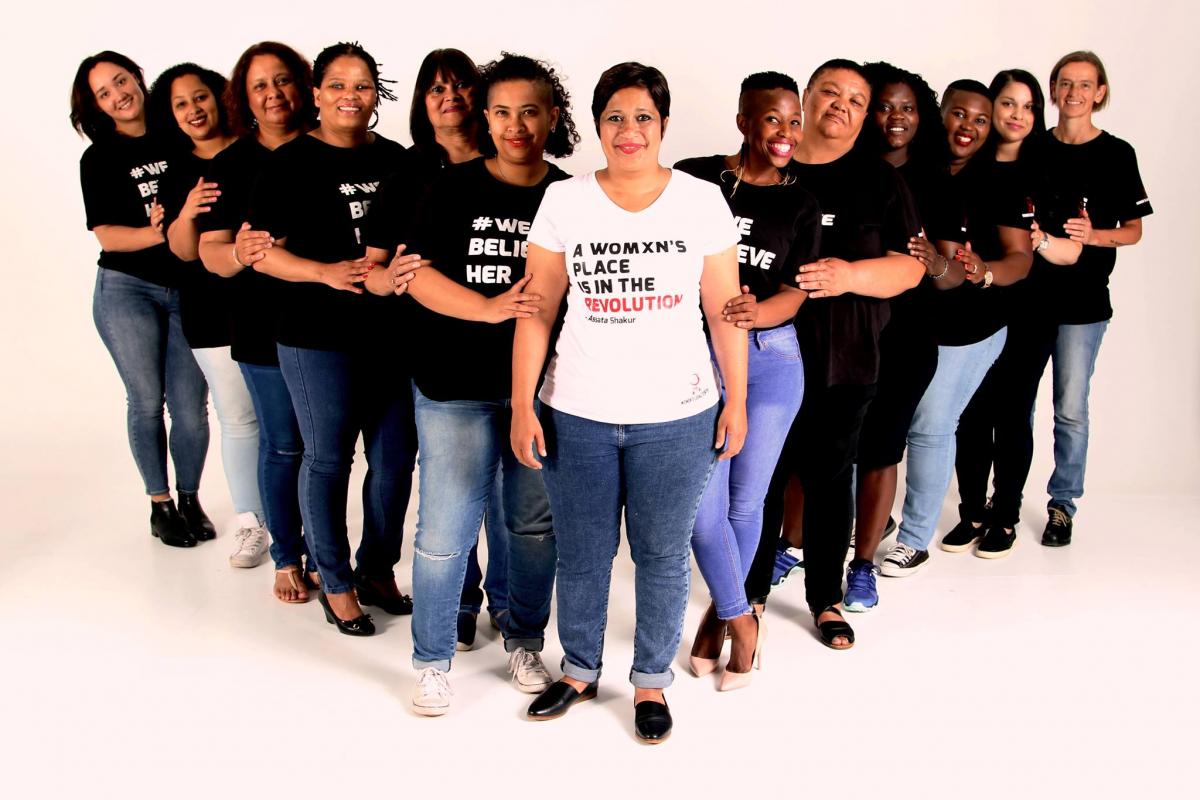 “We have a regular and free service where women can come into our offices or call us to receive free legal advice. We also coordinate two free legal advice clinics in Khayelitsha and at the Cape Town Magistrates’ Court. If we are unable to assist women, we refer them to the relevant government department, non-governmental organisation, law centre or court,” explains WLC Director Seehaam Samaai.
“We have a regular and free service where women can come into our offices or call us to receive free legal advice. We also coordinate two free legal advice clinics in Khayelitsha and at the Cape Town Magistrates’ Court. If we are unable to assist women, we refer them to the relevant government department, non-governmental organisation, law centre or court,” explains WLC Director Seehaam Samaai.
“In South Africa, women face grave violations of their rights to safety and dignity, which impacts negatively on women and society at large. We attend to cases that combat the infringement of these rights, and improves the access of women and (girl) children to state protection from violence, particularly sexual and domestic violence,” Samaai says.
The centre has achieved a number of victories in the courtroom which have advanced women’s rights and played a role in strengthening the legal system to crack down on GBV.
In 2017 and 2018, the WLC was involved in the case against alleged sex offender Sidney Frankel. The court confirmed a change in the Constitution, which allows sexual offenders to be prosecuted 20 years after offences were carried out. Frankel was alleged to have sexually abused a number of children in the 1970s and 80s. In 2018, with the assistance of the WLC, a landmark ruling was made in the case, when the court ruled that section 18 of the Constitution was unconstitutional, and that all sexual offenders should be allowed to be prosecuted more than 20 years after an offence is carried out.
The WLC was also involved in developing regulations for the establishment of sexual offences courts.
Advocate Bronwyn Pithey, head of the Violence Against Women programme, said that the centre’s programme will continue holding the state accountable to address the high levels of violence against women in South Africa.
To contact the Women’s Legal Centre, call 021 424 5660 or email info@wlce.co.za.
